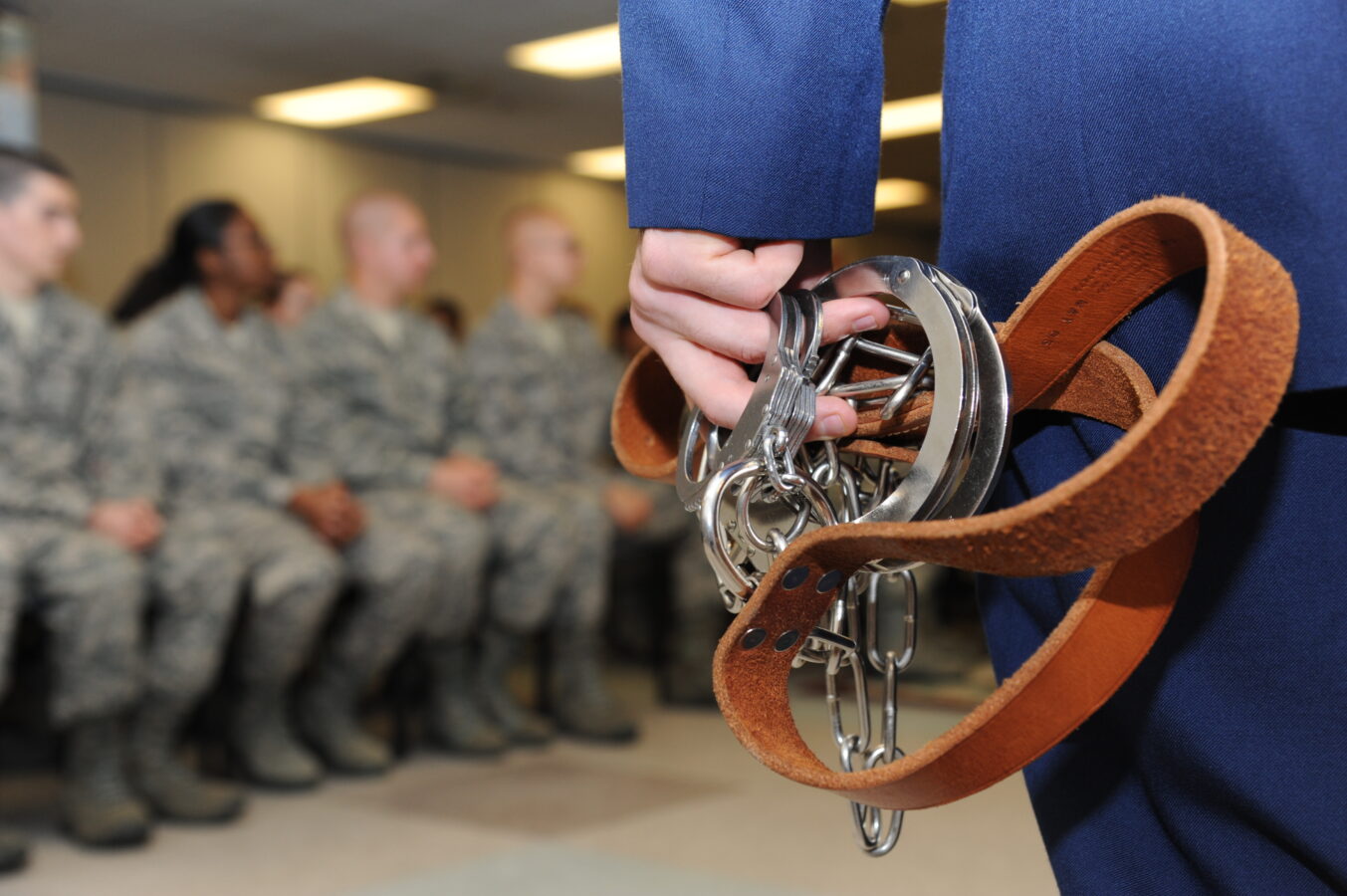What is a Court Martial?
Definition of a Court Martial
A court martial is a military court that handles criminal charges and disciplinary issues involving members of the armed forces. It operates similarly to a civilian criminal court, but with some key differences. A court martial has the authority to determine guilt and impose punishment for offenses covered under the Uniform Code of Military Justice (UCMJ).
Types of Courts Martial
There are three main types of courts martial, each with different levels of formality, authority, and maximum punishments:
Summary Court Martial
- Least formal type of court martial
- Presided over by a single commissioned officer
- Can impose punishments of up to 1 month confinement, hard labor without confinement for 45 days, restriction for 2 months, forfeiture of 2/3 pay for 1 month
Special Court Martial
- Intermediate court martial
- Military judge and jury panel of at least 3 service members
- Can impose punishments including confinement for 1 year, hard labor without confinement for 3 months, forfeiture of 2/3 pay for 1 year, reduction in rank
General Court Martial
- Most formal type of court martial
- Military judge and at least 5 jury members
- Felony-level offenses
- Can impose any lawful punishment, including imprisonment, dishonorable discharge, or death for certain offenses
Who Can Be Court Martialed?
The jurisdiction of courts martial applies primarily to active duty military personnel. However, in some cases, it may also apply to civilians.
Military Personnel
Active duty service members from all military branches are subject to courts martial. This includes enlisted personnel and commissioned officers. Reservists and National Guard members on active duty are also subject to courts martial.
Retired personnel and veterans cannot be tried by court martial after leaving service. Personnel discharged from the military can only be tried for offenses that occurred during their active service.
Civilians Under Certain Circumstances
In some cases, civilians can fall under the jurisdiction of courts martial, including:
- Civilians serving with or accompanying the armed forces during war or national emergency
- Military dependents living overseas
- Prisoners of war in military custody
- Defense contractors overseas during war
The Legal Framework
The Uniform Code of Military Justice (UCMJ)
The UCMJ is a comprehensive set of laws and regulations that define the rights and responsibilities of military personnel. It outlines the offenses that can lead to court martial and the procedures for conducting these legal proceedings.
Role of the Judge Advocate General (JAG)
The Judge Advocate General (JAG) Corps plays a crucial role in the court martial process. JAG officers serve as legal advisors, prosecutors, and defense counsel in court martial cases, ensuring a fair and just legal process.
Initiating Court Martial Proceedings
Court martial proceedings are initiated when a military commander believes that a service member has committed an offense that warrants legal action. The commander may refer the case to the appropriate level of court martial based on the severity of the alleged offense.
Crimes Handled By Courts Martial
Courts martial handle any offenses defined under the UCMJ, including both military-specific crimes as well as more common crimes. Some of the most common offenses tried by court martial include:
Absence Without Leave
- Failure to go to appointed place of duty
- Penalties based on length of time AWOL
Desertion
- Abandoning military duties with no intent to return
- Can be charged during wartime or peacetime
Disrespect Towards Superior Commissioned Officer
- Insubordination, contempt, disrespect in language or deportment
Failure to Obey Order or Regulation
- Disobeying lawful orders, dereliction of duty
Murder
- Unlawful killing of a human being
Rape
- Sexual assault/non-consensual sexual acts
Drug Use
- Wrongful use, possession, distribution of controlled substances
Court Martial Process
If court martial charges are brought against a military member, the case goes through the following general process:
Charges and Investigation
Before a court martial can take place, charges are filed against the accused, and an investigation is conducted. This phase involves gathering evidence, interviewing witnesses, and preparing the case for trial.
Pre-Trial Procedures
During pre-trial procedures, the accused is informed of the charges against them and has the opportunity to consult with legal counsel. The military justice system ensures that the accused’s rights are protected throughout this process.
The Court-Martial Trial
The court-martial trial is similar to a civilian trial, with some key differences. Evidence is presented, witnesses are called, and legal arguments are made. The panel or military judge determines the verdict and, if applicable, the sentence.
Referral of Charges
- Formal criminal charges prepared and signed by appropriate authorities
Article 32 Preliminary Hearing
- Similar to a civilian grand jury proceeding
- Probable cause and jurisdiction determined
Referral of Charges
- Convening authority reviews results of Article 32 hearing and refers case to specific court martial
Arraignment
- Defendant formally notified of charges and given opportunity to enter plea
Trial
- Court martial tries case based on established procedures
Sentencing
- If found guilty, court martial decides on appropriate sentence
Post-Trial Review
- Conviction and sentence examined by convening authority and judge advocate for approval
Appeal Process
- Defendants have right to appeal to military appellate courts and U.S. Supreme Court
Sentencing in Courts Martial
Courts martial have a wide range of punishments available, depending on the specific circumstances:
Possible Punishments
Reprimand
- Formal censure for an offense
Forfeiture of Pay
- Loss of military pay, typically temporary
Confinement
- Military jail time
Discharge from Service
- Dishonorable, bad conduct, or other discharge type
Death Penalty
In rare cases, courts martial can impose the death penalty for certain offenses like desertion, espionage, or murder.
Key Differences from Civilian Courts
While courts martial function similarly to civilian courts, there are some notable differences:
Military Judge
The presiding official is a military judge, not a civilian judge.
Rules of Evidence
Military rules of evidence apply, not civilian evidentiary rules.
Jury Composition
Instead of a civilian jury, it is a panel of military members who decide guilt or innocence.
Conclusion
In summary, a court martial is a unique military legal proceeding with jurisdiction over armed forces personnel. Its procedures and punishments help maintain discipline and order within the ranks. Courts martial weigh charges under the military justice system and have significant power to penalize those found guilty of offenses. Understanding the court martial process provides insight into this key institution upholding military law.
FAQs
What is the maximum punishment in a court martial?
General courts martial can impose any lawful punishment including the death penalty. Lesser courts martial have limits such as 1 year confinement for special courts martial.
Who oversees the court martial system?
The Judge Advocate General’s Corps is responsible for overseeing military justice including advising on courts martial.
Can you appeal a court martial?
Yes, cases can be appealed up the military appellate courts and to the U.S. Supreme Court.
Are courts martial open to the public?
Courts martial are generally open proceedings except when classified information is involved.
What is an Article 32 hearing?
An Article 32 hearing is the preliminary proceeding in a court martial to determine if there is probable cause to proceed to trial. It is similar to a civilian grand jury.







